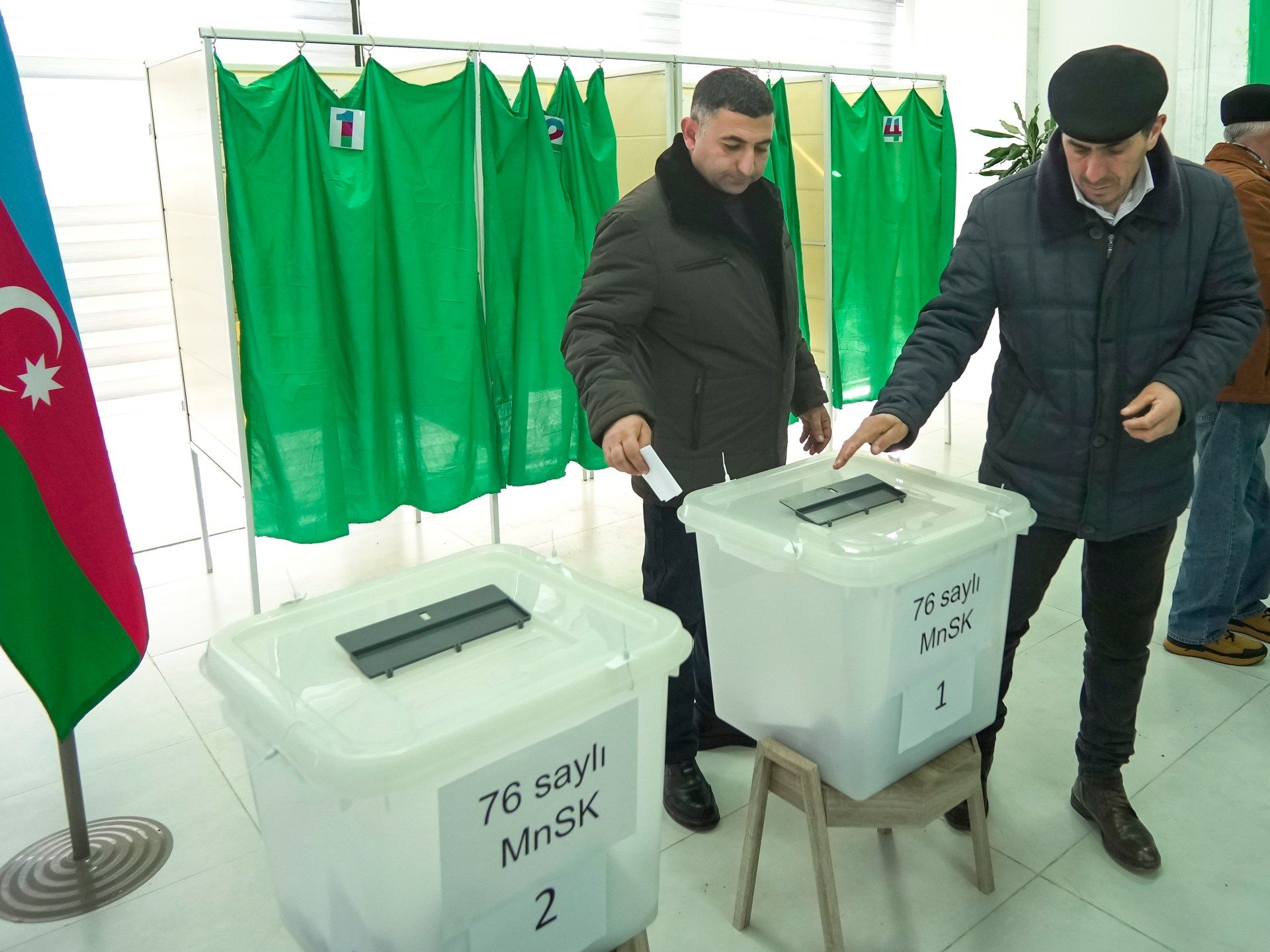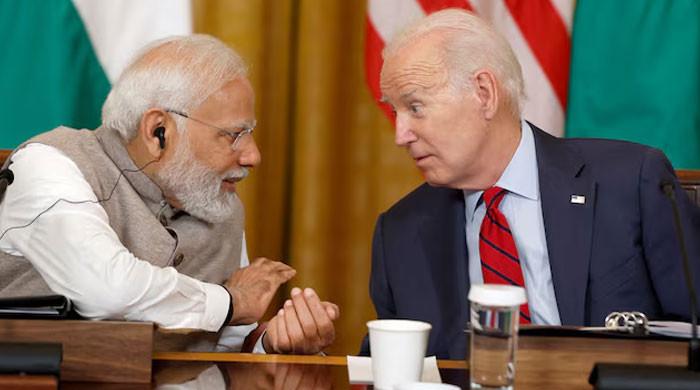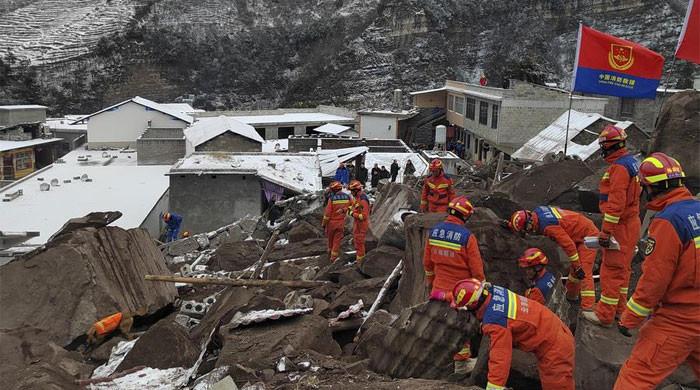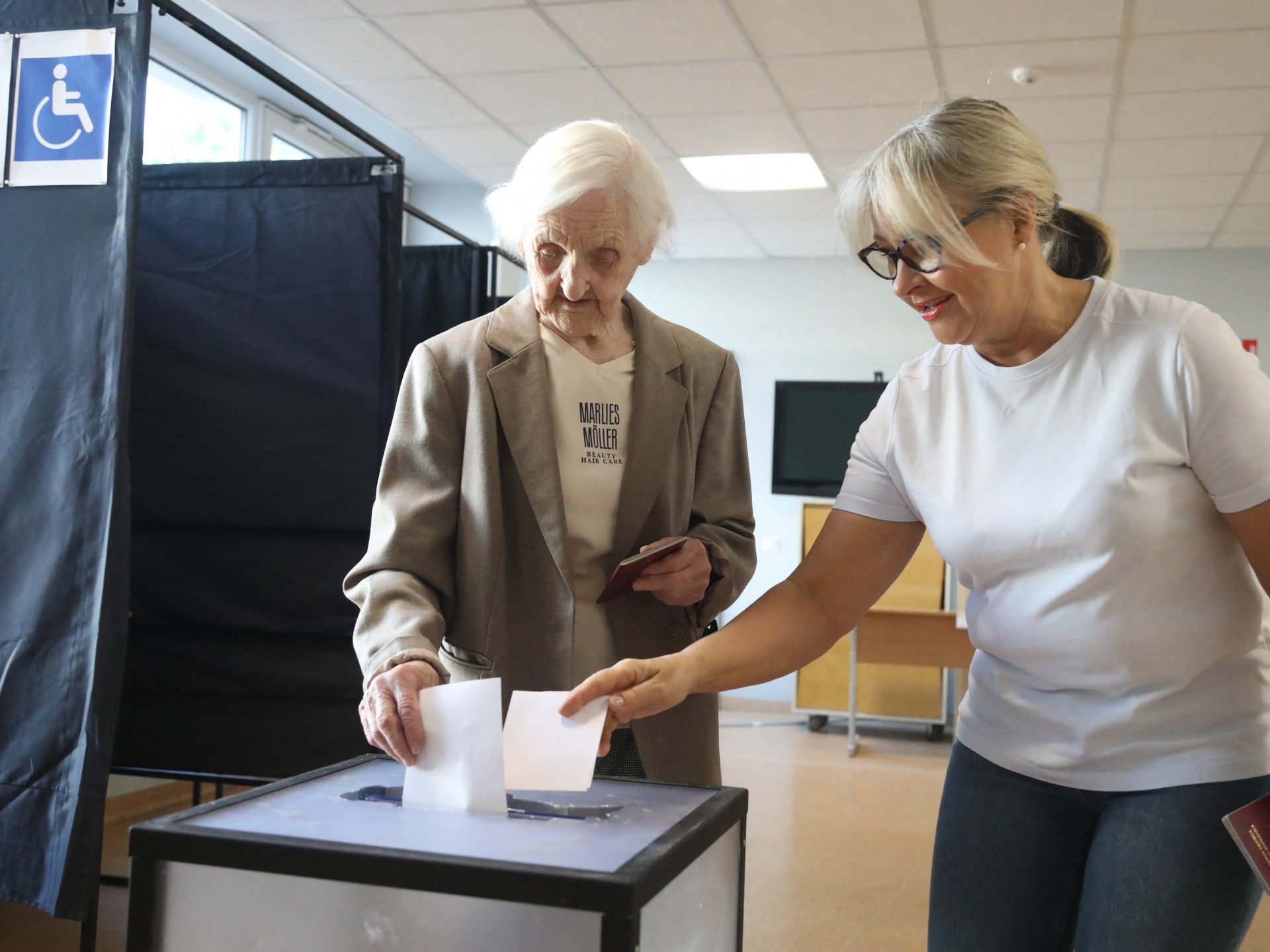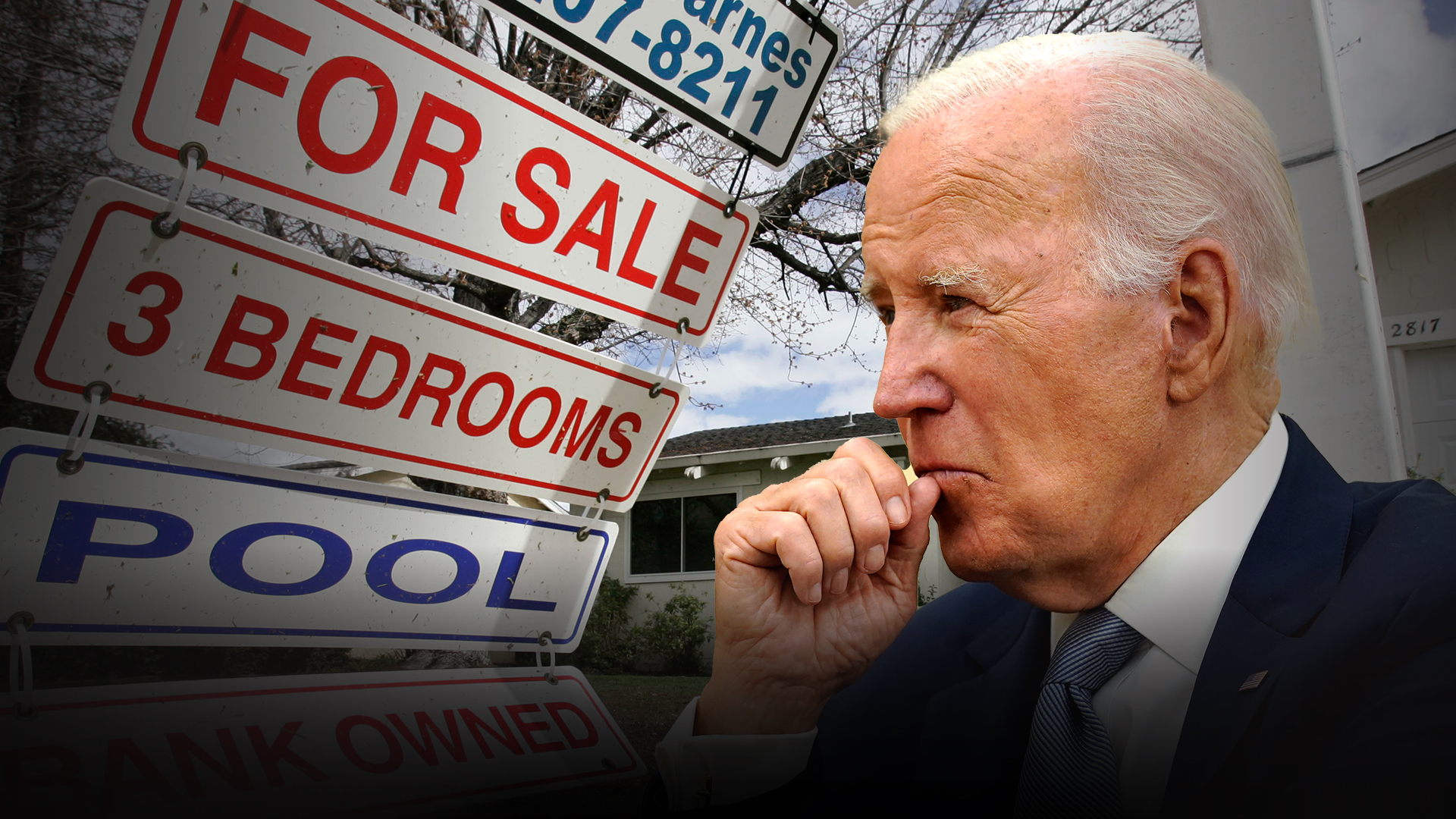President Aliyev was widely expected to win another term after taking control of the separatist enclave of Nagorno-Karabakh.
Voters in Azerbaijan are casting their votes in an election that is expected to give President Ilham Aliyev another seven-year term after a military offensive last year put the Armenian separatist region of Nagorno-Karabakh under his control. government.
A fifth term for Aliyev is considered a foregone conclusion in Wednesday's vote, also due to the crackdown on independent media and the absence of a real opposition.
Azeri forces launched a bombardment in September that forced the separatists, who had controlled the territory for more than three decades, to disarm. Tens of thousands of ethnic Armenians were forced to flee to neighboring Armenia.
Eager to capitalize on that victory, Aliyev announced a snap election for February that was originally scheduled for 2025. He said he wanted the vote to “usher in a new era” in which Azerbaijan has full control over its territory.
“I will vote for the victorious leader Ilham Aliyev,” Sevda Mirzoyeva, a 52-year-old resident of the capital, Baku, told the Associated Press news agency before polling stations opened.
The president ordered the lightning offensive last year after a nine-month blockade to regain full control of the separatist enclave of Nagorno-Karabakh.
Announcing the elections in January, Aliyev said the elections would be held for the first time in the Karabakh region after the exodus of ethnic Armenians.
Aliyev, 62, was first elected president in 2003 following the death of his father Heydar Aliyev, a former KGB officer who had ruled Azerbaijan since 1993.
He was re-elected in 2008, 2013 and most recently in 2018 with 86 percent of the vote. All elections were denounced by opposition parties as rigged.
In 2009, Aliyev amended the constitution to allow him to run for an unlimited number of presidential terms, a move criticized by human rights advocates who say he could become president for life.
His tenure in power has been marked by the introduction of increasingly strict laws curbing political debate, as well as arrests of opposition figures and independent journalists, including in the run-up to the election.
Aliyev faces no real challenge from the other six candidates, some of whom have publicly praised him.
Azerbaijan's two main opposition parties, Musavat and the Popular Front, will not participate in the vote.
Musavat leader Arif Hajili told the AP that the party would not participate in the elections because they are not democratic.
“Many journalists and political activists are in prison. There are more than 200 political prisoners. There are serious problems with the electoral law and the electoral commissions are basically under the influence of the authorities,” Hajili said.
Ali Kerimli, leader of the Popular Front party, has said that calling for early elections without public debate shows that authorities fear political competition.
In theory, there can be two rounds of voting if a candidate fails to get more than 50 percent of the vote in the first round, but Aliyev is widely expected to be re-elected in a landslide, as he has been in previous elections.
Around six million voters are registered for the elections monitored by observers from the Organization for Security and Cooperation in Europe (OSCE).

